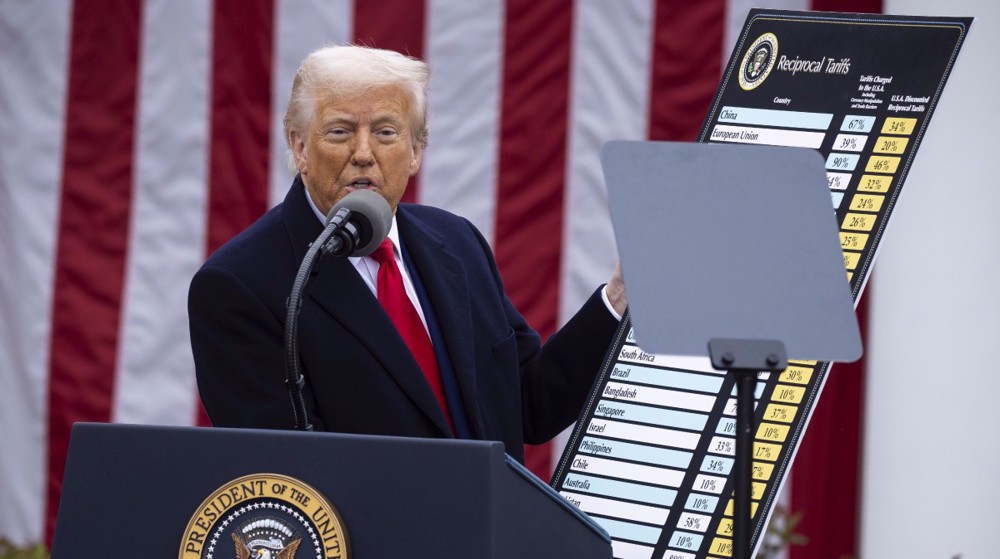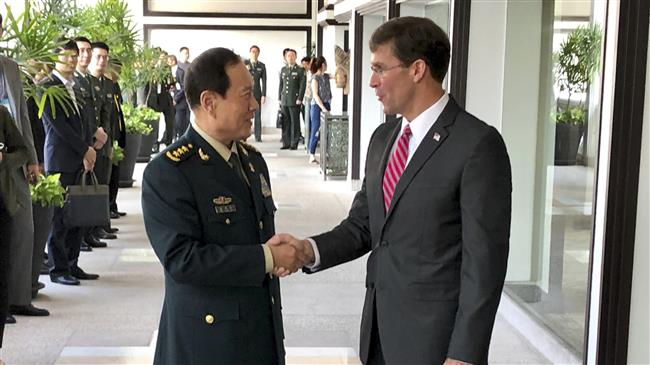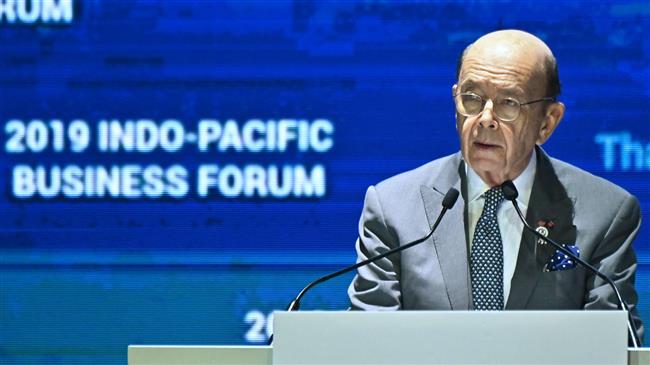In high-level talks, Beijing warns US over South China Sea, Taiwan
China has, during high-level talks, warned the United States to stop “flexing its muscles” in the disputed South China Sea and fueling tensions over self-ruled Taiwan, two main sources of friction between the two powers.
Chinese Defense Minister Wei Fenghe made the remarks on Monday during closed-door talks with US Defense Secretary Mark Esper on the sidelines of a gathering of defense ministers in the Thai capital, Bangkok, according to Defense Ministry spokesman Wu Qian.
Wu said the minister urged Washington to “stop flexing muscles in the South China Sea and to not provoke and escalate tensions in the South China Sea.”
“We (call on) the US side to stop intervening in the South China Sea and stop military provocation in the South China Sea,” the minister was quoted as saying.
The US has stepped up its military presence in the South China Sea — mostly claimed by Beijing — under the pretext of freedom of navigation operations in international waters.
The South China Sea serves as a gateway to global sea routes, though which about $3.4 trillion of trade passes each year. Vietnam, Taiwan, the Philippines, Malaysia, and Brunei have overlapping claims with China to parts of the sea.
Washington has sided with Beijing’s rivals in the maritime row and accuses China of militarizing the region.
In public remarks on Sunday, Esper accused Beijing was “increasingly resorting to coercion and intimidation to advance its strategic objectives” in the region.
“China’s activities there are a threat not only to other claimants and to many Southeast Asian nations, but to all trading nations who value freedom of the seas, and the peaceful settlement of disputes.” Esper said at the ASEAN-US ministerial meeting of the annual ASEAN Defense Ministers’ Meeting-Plus.
During Monday’s talks, the two sides also discussed the issue of Taiwan, the self-ruled island, which is considered as a wayward province under the globally-recognized “One China” policy.
“The Chinese side also requires the US side to carefully handle the Taiwan related-issue and to not add new uncertainties to the Strait,” said Wei.
He underscored Beijing’s position that it would “not tolerate any Taiwan independence incident,” reiterating Beijing’s opposition to Washington’s military contacts with Taiwan.
China has pursued Taiwan’s reunification ever since the island broke away from the mainland during a civil war in 1949. China claims full sovereignty over the island; and almost all world countries, including the US, recognize that sovereignty.
Washington, however, has long courted Taipei in an attempt to counter Beijing. The US — which has no formal diplomatic relations with Taipei by law — has extensive military ties with Taipei, selling advanced military hardware to the island.
The latest developments came after China on Sunday sailed a carrier group into the Taiwan Strait, led by its first domestically-built aircraft carrier.
The carrier crossed the strait on Sunday before entering the South China Sea for “scientific research tests and routine training,” China’s Navy spokesman Cheng Dewei said on an official social media account.
“It is not aimed at any specific target and has nothing to do with the current situation,” Cheng said without elaborating.
Taipei’s foreign minister, Joseph Wu, accused China in a tweet on Sunday of intending “to intervene in #Taiwan’s elections,” adding, “Voters won’t be intimidated!”
Taiwan’s defense ministry said it had dispatched ships and planes to track and closely monitor the carrier’s movements, and that US and Japanese vessels trailed it in the strait.

Trump threatens additional 50% tariffs on China as trade war escalates

China slams US for unilateralism, protectionism, economic bullying with tariffs

China hits back with 34% tariffs on US imports as fears of global recession rise
Trump threatens additional 50% tariffs on China as trade war escalates
Pro-Palestine activists facing deportation decry German state repression
Netanyahu ‘returned empty-handed’ from US after Trump announced planned Iran talks: Reports
'Stab in the back': Hamas slams PA crackdown on pro-Gaza rallies in West Bank
Saudi police ‘detain’ female pilgrim for displaying Palestinian flag in Mecca
Israel orders 15-day ban on Ibrahimi Mosque director in al-Khalil
More intl. students face deportation amid Trump's crackdown on pro-Palestine activism
Trump's tariffs hitting EU exports to US












 This makes it easy to access the Press TV website
This makes it easy to access the Press TV website